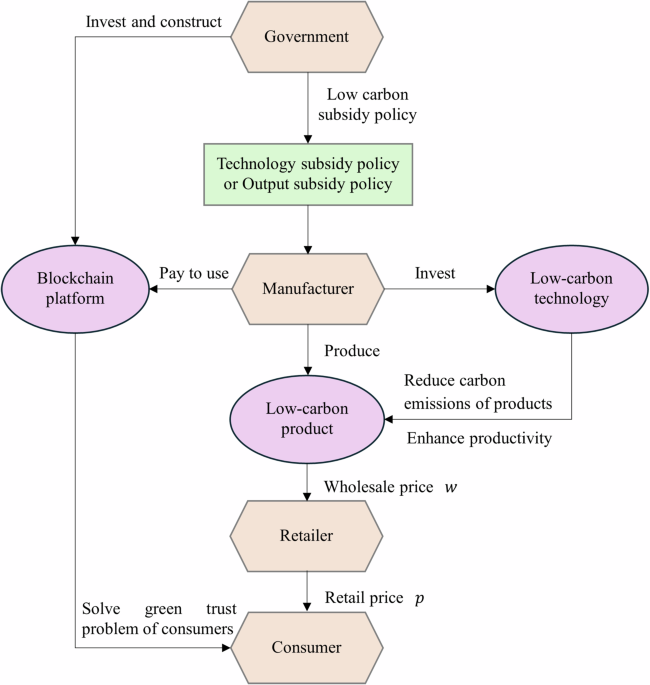Top Use Cases of Blockchain Technology in 2025

Blockchain has a significant role in our everyday lives and in maintaining digital assets. All digital transactions and transfers will be recorded in this technology, ensuring a single point of truth and transparency. Experts assess that the advancement of blockchain can open new opportunities and modifications in various industries. According to experts at Bitemycoin, blockchain’s rapid evolution is already shaping how industries secure transactions and digital assets. In this article, we will explore some of the possibilities of blockchain technology.
What is Blockchain Technology?
Blockchain technology is a decentralized and shared digital ledger that keeps a record of transactions across computer networks. It operates on peer-to-peer networks, offering secure, transparent, and inviolable transactions. People think that the role of blockchain is limited to the trading of cryptocurrencies.
However, it has a much larger use and potential. Since the transactions or data cannot be changed, it does not require the involvement of third parties like governments or banks, which helps reduce any manipulation or errors.
How Does Blockchain Technology Work?
As mentioned above, blockchain acts as a ledger that records transactions between users. The data is stored in a block that has its own unique alphanumeric code, also known as a hash. These codes play an important role in linking blocks, and new blocks are created from the previous block’s hash.
It maintains a chronological sequence of codes and is tamper-proof. Once a transaction takes place, it is permanently recorded and stored. The actions that take place through blockchain are irreversible.
Top Blockchain Use Cases
Even though Blockchain technology was introduced in 1991 by researchers Stuart Haber and W. Scott Stornetta. However, only after two decades was its potential was recognized with the launch of Bitcoin in 2009. Since then, blockchain has been used in various industries. Here, we will look at the top use cases of blockchain technology.
Banking and Fintech
The blockchain is efficient when compared to traditional technology because of its speed, security, and lower costs. When it comes to banking and other financial aspects, all transactions, including international ones, can be carried out without any intermediaries. As we have seen, the data stored using blockchain is non-tamperable, maintains utmost transparency, and protects against fraud.
Logistics and Supply Chain
Using blockchain technology, companies can improve traceability and transparency in managing their supply chain. It will record the whole movement, enabling companies to track their shipments from production to delivery. It also simplifies data collection and compilation, removing potential errors or fraud.
Healthcare
Blockchain technology can play a crucial role in the healthcare industry. It can be used to encrypt patients’ data and store it in hospital records. This technology can also automate functions, such as insurance claims, smart contracts, and medical monitoring. It also simplifies the sharing of medical data between hospitals.
Cybersecurity
Blockchain is tamper-proof, and the ledger can be secured from potential breaches or fraud. With the help of this technology, measures are implemented to secure transactions, protect bank assets, and personal data. Moreover, it also ensures that the data is accessed only by authorized personnel.
Government
The secure and immutable nature of blockchain technology can enhance government procedures. It can secure personal information and help manage individual data more efficiently. Moreover, this technology can also be used for conducting elections more transparently, removing fraud and miscalculations in the vote.
Real Estate
In real estate, blockchain technology can help optimize both commercial and retail properties. People can view previous transactions, record the number of properties, and their ownership. The technology can also help implement rules and regulations to prevent fraudulent deals. It is beneficial for minimizing paperwork and ensuring quick ownership transfers.
Education
Experts have noted that blockchain can play a vital role in the educational sector. It can help securely store the academic data and credentials of individual students. Moreover, student verification can be completed within minutes, ensuring transparency. It can help improve trust among students and educational institutions.
Final Words
This is a gist of how blockchain technology can be used in various industries. It can be expanded to other areas as well, such as media, energy, oil, NFTs, insurance, etc. As we have seen, it brings more uniformity in how individual data is stored and provides utmost transparency and security. Blockchain technology is the future of different industries and fields working together, and it can help improve their potential.
However, some issues related to blockchain persist, such as high energy demands, scalability, storage, and time-consuming. We hope that such challenges can be overcome in the upcoming years, and blockchain technology will enhance the overall functionality of different industries.
Author
Zack Oliver
A passionate crypto writer and researcher who covers blockchain trends, digital assets, and the future of decentralized finance.
link






